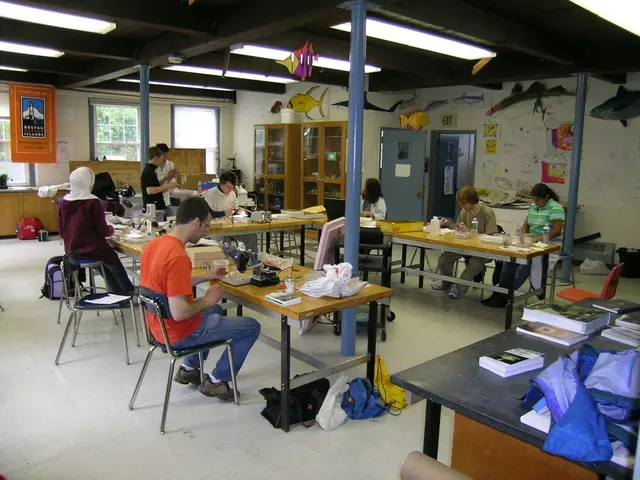Securing Residency Victory: Scoring, Strategy, and Interview Tactics
For aspiring medical professionals, the residency match process is a critical and often nerve-wracking part of their journey. To optimize your chances of matching into a competitive program, consider these expert strategies:
**1. Craft a Standout ERAS Application**
The Electronic Residency Application Service (ERAS) is the first filter to evaluate candidates. Make the most of this opportunity by including up to 10 categorized experiences and highlighting your 3 most meaningful ones. This gives programs a deeper understanding of your background and journey in medicine [1].
In addition, a well-structured personal statement can distinguish a candidate from others with similar GPAs and Step scores. Ensure it is tailored to the programs you are targeting, reflecting your passion, goals, and fit for the specialty [3]. A polished CV, focused on your relevant accomplishments and updated frequently, is also crucial [3].
**2. Obtain Strong Letters of Recommendation**
Letters of recommendation carry substantial weight. Secure at least three high-quality letters from faculty who know you well and can speak specifically to your clinical skills, professionalism, and character [1]. Strategically assign letters to programs via the ERAS portal and consider including letters from diverse specialties when appropriate [1].
**3. Apply Strategically and Broadly**
Applying to a balanced range of programs is key. Aim for approximately one-third reach programs, one-third match programs (where your profile fits well), and one-third safety programs [2]. Consider geographic diversity to increase match probability rather than limiting yourself to preferred locations only [2].
**4. Prepare Intensively for Interviews**
The interview is often the final deciding factor for program directors. Be prepared to clearly explain your clinical strengths, career goals, and why you are the best fit for the program. Accept all interview invitations since each is a crucial opportunity to show interest and demonstrate fit [2].
**5. Send a Thoughtful Residency Letter of Intent**
After interviews, send a personalized letter of intent to your top-choice programs before the ranking deadline. Address the program director by name and highlight why the program is an excellent fit for your goals and interests, reflecting insights gained during the interview [5].
**6. Stay Organized and Timely**
Meet all ERAS deadlines and submit your application early to avoid technical issues and maximize visibility [1][3]. Prepare for the Supplemental Offer and Acceptance Program (SOAP) in case you do not match initially, keeping materials updated and ready for rapid submission [2].
By focusing on these elements—maximizing your ERAS application content, securing strong recommendations, applying smartly across programs, excelling in interviews, and following up with personalized letters—you significantly enhance your competitiveness for a sought-after residency position.
Remember, success in the residency match process is about preparation, persistence, and presenting one's best self, rather than striving for perfection. Early MCAT prep not only helps students gain admission but also instills habits necessary to succeed in the medical field, such as rigor, long-term planning, and focus [4].
Platforms such as Ace Med Boards offer medical school tutoring and MCAT prep services to aid in this preparation [6]. Aligning one's interests with the demands of a specific specialty requires internal decision-making [7]. Since many interviews are now held virtually, it's crucial to not only prepare answers but also set up a professional setting [8].
Sources: [1] Association of American Medical Colleges (AAMC) [2] National Resident Matching Program (NRMP) [3] American Medical Student Association (AMSA) [4] Association of American Medical Colleges (AAMC): Early MCAT Prep Benefits [5] Association of American Medical Colleges (AAMC): Residency Letter of Intent [6] Ace Med Boards: Medical School Tutoring and MCAT Prep Services [7] Association of American Medical Colleges (AAMC): Choosing a Specialty [8] National Resident Matching Program (NRMP): Virtual Interviews
- In addition to optimizing their ERAS application, aspiring medical professionals can prioritize personal growth by dedicating time to education-and-self-development, focusing on building skills-training that will bolster their clinical strengths for their chosen specialty.
- For personal-growth and career-development beyond the medical field, online learning platforms can provide numerous courses and resources on subjects like psychology, mental health, and personal growth to help them cultivate well-rounded skills.
- Enhancing mental health is essential for overall well-being, and personal growth strategies can include stress management techniques, self-reflection, and open communication – elements that are instrumental in maintaining a healthy work-life balance essential in any career-related pursuits.
- Establishing a strong support system, including friends, family, co-workers, and mentors, can play a crucial role in personal growth and long-term success, as they offer encouragement, wisdom, and opportunities for self-improvement.







